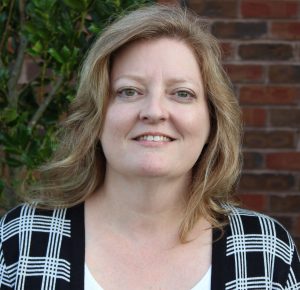GREENEVILLE – Providing additional convenience to its students, the College of Nursing at Tusculum University is permanently converting the coursework portion of its Master of Science in nursing program to a virtual format.

Dr. Susan Wall
The revision takes effect with the spring semester, which starts in January, and reflects the College of Nursing’s desire to offer a program that accommodates students’ calendars and reduces time and expense associated with travel. For many of the classes, though, it will retain the feel of a classroom setting, enabling the sharing of best practices for all participants.
In the new teaching method, students will have several synchronous courses, in which they and their classmates will participate in a virtual class setting at the same time, and others that are asynchronous, in which they can watch the lecture or other form of instruction at any time. The clinical hours will be performed in person.
“Many students who enroll in our program are working health care professionals, and it might not be practical for them to come to campus for courses,” said Dr. Susan Wall, the College of Nursing’s interim dean. “We are pleased to adjust our teaching methods so these students can continue with their daily routines as much as possible while still moving toward their master’s degree.”
Katie Tassell, Tusculum’s director of graduate admission, said the change will also benefit local nurses who have families and do not have as much flexibility to come to campus for their courses. Another plus is that potential students who want to enroll in Tusculum’s program but who perhaps live considerable distance away will be able to stay in their current residence while taking their courses, Dr. Wall said.
The College of Nursing went to a virtual format for the Master in Science in nursing when the global coronavirus pandemic arrived in the region and has retained it ever since. Based on the results, leaders in the nursing program and admission team recognized the value of making the switch permanent.
Students who complete this program graduate with a Master of Science in nursing, with a family nurse practitioner concentration. After earning the degree, students must take a certification exam administered by the American Nurses Credentialing Center or the American Academy of Nurse Practitioners Certification Board and then apply for licensure as an advanced practice registered nurse. Nurse practitioners are an integral part of the health care system, treating patients in a variety of medical settings.
Tusculum’s Master of Science in nursing program is 40 credit hours, with an additional 540 clock hours of clinical training. Dr. Wall said one of the personal touches the College of Nursing provides is assistance in helping students find clinical placements for their training.
“Our approach is rooted in quality and affordability, and everyone in the nursing program is focused on preparing our students to be successful and compassionate medical providers who make a difference in their patients’ lives,” Dr. Wall said. “When students look at the breadth and depth of our program, they recognize how they will receive the biggest bang for their buck.”
The Master of Science in nursing program is accredited with the Commission on Collegiate Nursing Education and is approved by the Tennessee Board of Nursing.
“Tusculum continually looks for ways to meet the needs of our students and makes appropriate changes to assist them, when necessary,” Tassell said. “A master’s in nursing from Tusculum brings considerable benefits to health care providers, and we welcome the opportunity to make the transition to the program as seamless and positive as possible.”
For more information, please email Tassell at ktassell@tusculum.edu or visit https://web.tusculum.edu/academics/programs/msn-fnp/.


